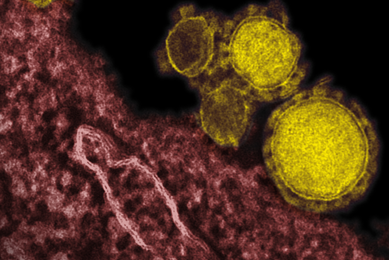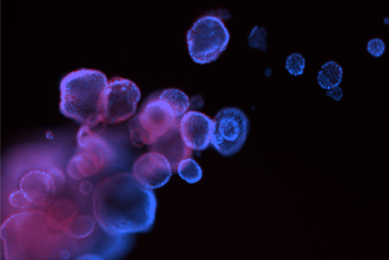Things to Consider – Animal Models as a Preclinical Study Tool
Animal models have played a pivotal role in all stages of vaccine development. For example, the predictive value for vaccine effectiveness depends on the pathogen, the robustness of the animal challenge model, and the correlates of protection (if known). Although animal models have been invaluable in delineating the mechanisms of immune function, their precision in predicting how well specific therapies work in humans is often suboptimal.
Preclinical studies are important because of their utility in bridging basic research and clinical trials; however, their value is dependent on the quality and relevance of the chosen model. In order to advance better therapies and vaccines through the development pipeline, we need accurate and physiologically relevant preclinical models. Clinical success rates in advancing drugs to market between 2006 and 2015 found that only 9.6% of drugs entering phase I clinical testing will reach the market.1 Following phases II and III, 30.7% and 58.1% of drugs fail, respectively.1 Whether it is animal models, in vitro or in silico methods, there is a need for more predictive and physiologically relevant models to inform the research community in testing potential therapies for infectious diseases.
How we can help
In recent years, ATCC has served as a contractor through The National Institute of Allergy and Infectious Diseases (NIAID) preclinical studies program to support research on feasibility, efficacy, and safety of drugs and vaccines prior to human trials. ATCC offers the research community essential expertise for executing and managing projects to support preclinical models of infectious diseases. ATCC is the world's most diverse microbiological resource center, offering a vast collection of mammalian and animal cells, including iPSCs, stem cells, and organoids, that support the creation of relevant in vitro models that catalyze preclinical research. ATCC's experience in developing the Biological and Emerging Infections Resources Program (BEI Resources) for the last 20 years provides reliable breadth and depth in infectious diseases research using animal models.2 We provide in vivo–derived reagents to support malaria, parasite, bacteria, and virus research, including in vivo propagated pathogens and monoclonal and polyclonal antibodies. We have also developed expertise in animal replacement models using intestinal organoids for the in vitro culture of the parasite Cryptosporidium through funding by NIAID’s In Vitro Assessment for Antimicrobial Activity Program (IVAAA).
Did you know?
ATCC operates an Association for the Assessment and Accreditation of Laboratory Animal Care (AAALAC) - accredited vivarium under a Public Health Service (PHS) Office of Laboratory Animal Welfare (OLAW) Assurance in a United States Department of Agriculture (USDA) registered facility. The facility houses mice, rats, hamsters, and rabbits, and has served the BEI Resources Program in providing in vivo model pathogens up to Animal Biosafety Level 2 (ABSL-2). Examples of pathogens propagated in vivo for the program include rodent malaria model parasites (Plasmodium berghei, P. vinckei, P. chabaudi, P. yoelli), Babesia spp., and Trypanosoma spp. Previous ATCC-sponsored work using rodent models at our facility resulted in the first proteomics studies of Babesia microti infection in blood and urine of Syrian hamsters.1,3,4 Our mouse model studies have examined vaccine approaches against Zika virus and tick-borne Powassan virus with particular attention to the application of virus-like particle technology as a strategy for immunization.5,6
Meet the authors
Robert Molestina, PhD
Lead Scientist, ATCC
Robert Molestina, PhD, is a Lead Scientist at ATCC. He has a background in scientific research in infectious diseases and execution of government-funded programs. Dr. Molestina serves as the subject matter expert in research and development activities in the Protistology and Malaria Laboratories which include, among others, the development of assays for molecular authentication of parasites, optimization of culture and cryopreservation protocols, and implementation of animal models for parasite propagation. In addition to managing parasitic protozoa and malaria resources under the BEI program, Dr. Molestina serves as the point of contact for arthropod vector resources offered through the BEI repository. His publication record for the last 20 years covers a diversity of scientific interests, including bacterial pathogenesis, molecular parasitology, eukaryotic microbiology, and proteomics of infectious disease.
Susan Gottshall, BS, MBA
Technical Manager, Animal Holding Facility, BEI Resources
Susan has a BS from Colorado State University and an MBA from Southern New Hampshire University. Susan has more than 30 years of experience working with animal models, including farm animal species and rodents. Susan’s areas of animal model expertise span reproductive physiology and immunology, animal models of pain, metabolic disease, kidney disease, and side effect profiling. Susan has worked in the Biotech, Pharma, and Contract research space during her career and contributed preclinical research data to more than five investigational new drug applications (INDs). Susan has coauthored 13 peer-reviewed publications and 29 scientific abstracts. Susan has extensive experience in vivarium design, management, and regulatory compliance.
Explore our featured resources

Federal Solutions
Support for federal agencies through contracts focused on global health and infectious diseases, biodefense, chronic diseases, clinical study support, global logistics, and biorepository establishment/maintenance.
More
Infectious Disease Research
ATCC offers an extensive array of microorganisms and nucleic acids that promote research leading to the development of novel methods for detecting, minimizing, and treating infectious diseases.
More
Cell Models
Cell models are widely used in toxicology, immunology, and cancer pharmacogenomic studies to predict clinical response and to identify novel mechanisms associated with variation in drug response.
MoreReferences
- Magni R, et al. Proteomic analysis reveals pathogen-derived biomarkers of acute babesiosis in erythrocytes, plasma, and urine of infected hamsters. Parasitol Res 119(7): 2227-2235. PubMed: 32435898
- Molestina RE, Stedman TT. Update on BEI Resources for parasitology and arthropod vector research. Trends Parasitol 36(4): 321-324, 2020. PubMed: 32035817
- Magni R, et al. Analysis of the Babesia microti proteome in infected red blood cells by a combination of nanotechnology and mass spectrometry. Int J Parasitol 49(2): 139-144, 2019. PubMed: 30391228
- Magni R, et al. Evaluation of pathogen-specific urinary peptides in tick-borne illnesses. Sci Rep 10(1): 19340. PubMed: 33168903
- Cimica V, et al. Zika Virus-Like Particle (VLP) vaccine displaying Envelope (E) protein CD loop antigen elicits protective and specific immune response in a murine model. Biochem Biophys Res Commun 529(3): 805-811. PubMed: 32736711
- Cimica V, et al. A Virus-Like Particle-Based Vaccine Candidate against the Tick-Borne Powassan Virus Induces Neutralizing Antibodies in a Mouse Model. Pathogens 10(6): 680. PubMed: 34072726
